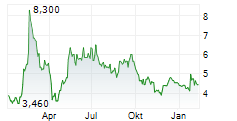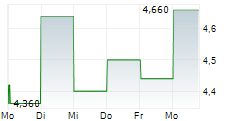
SAN CARLOS, CA / ACCESSWIRE / August 5, 2024 / Whether navigating daily expenses or planning to make a large purchase, you may be wondering if a personal loan or credit card is right for you. Both options can offer you the flexibility to spend now and pay later, and can be valuable tools when used responsibly. So, which one should you choose? Let's dive deeper into how personal loans and credit cards work and when it can make sense to use each so that you can decide which option is right for your financial needs.
What is a Personal Loan?
A personal loan is a borrowed amount of money you can pay back in fixed installments over a predetermined period. These types of loans are often unsecured, meaning you don't need to provide collateral. Additionally, they typically come with lower interest rates than credit cards. The fixed repayment schedule can help you anticipate your monthly budget and avoid the risk of getting stuck in a debt cycle.
What is a Credit Card?
Credit cards are financial tools that provide a revolving line of credit. You can borrow up to your credit limit and regain your borrowing power as you pay off your balance. Many cards offer rewards, such as cashback or points. However, keep in mind that interest rates can be high, and if you only make your minimum monthly payment, the interest can quickly compound (and become expensive).
When to Use a Personal Loan vs. Credit Card
To decide between a personal loan and a credit card, consider your financial situation, the size of the expense, and your ability to repay. Personal loans might be a better choice for the following:
Covering home renovations: A personal loan can provide the large upfront sum needed for major home improvement projects. The stable interest rate and fixed repayment period can help you effectively plan and budget this significant expense.
Paying medical bills: In a medical emergency where costs are high and immediate, a personal loan can be a sensible option. It allows you to pay the whole bill at once, avoiding the risk of delayed treatment due to financial concerns.
Consolidating debt: If you have multiple high-interest debts, such as credit cards, consolidating these into a single personal loan with a lower interest rate can help you save money and simplify your finances.
Paying for major life events: Events such as weddings or moving to a new house can come with substantial costs. A personal loan can be an effective way to help manage these expenses, allowing you to spread the cost over a more extended period.
Credit cards, on the other hand, could be more suitable in the following situations:
Covering daily expenses: Credit cards can be a convenient payment method for everyday expenses like groceries, gas, and online shopping. This financial product provides an easy way to track your spending and allows you to earn rewards or cash back on purchases you make regularly.
Paying for travel expenses: Many credit cards offer travel-related benefits such as travel insurance, airline miles, and hotel points. Using a credit card for travel bookings can allow you to take advantage of these benefits and provide added protection in case of unexpected cancellations or delays.
Covering costs when you qualify for a 0% promotional offer: Some credit cards may offer a 0% interest rate for a promotional period, making them an appealing option for larger purchases you can pay off within the specified timeframe. However, it's essential to have a plan in place to repay the balance before the promotional period ends, as any remaining balance can incur high interest charges.
The Bottom Line
Both personal loans and credit cards can be beneficial financial tools when you need to cover expenses. Regardless of which option you choose, it's crucial to understand the terms and conditions thoroughly and have a realistic repayment strategy in place. This approach will ensure you make the most of your personal loan or credit card without going into debt.
CONTACT:
Sonakshi Murze
Manager
sonakshi.murze@iquanti.com
SOURCE: Oportun
View the original press release on accesswire.com



